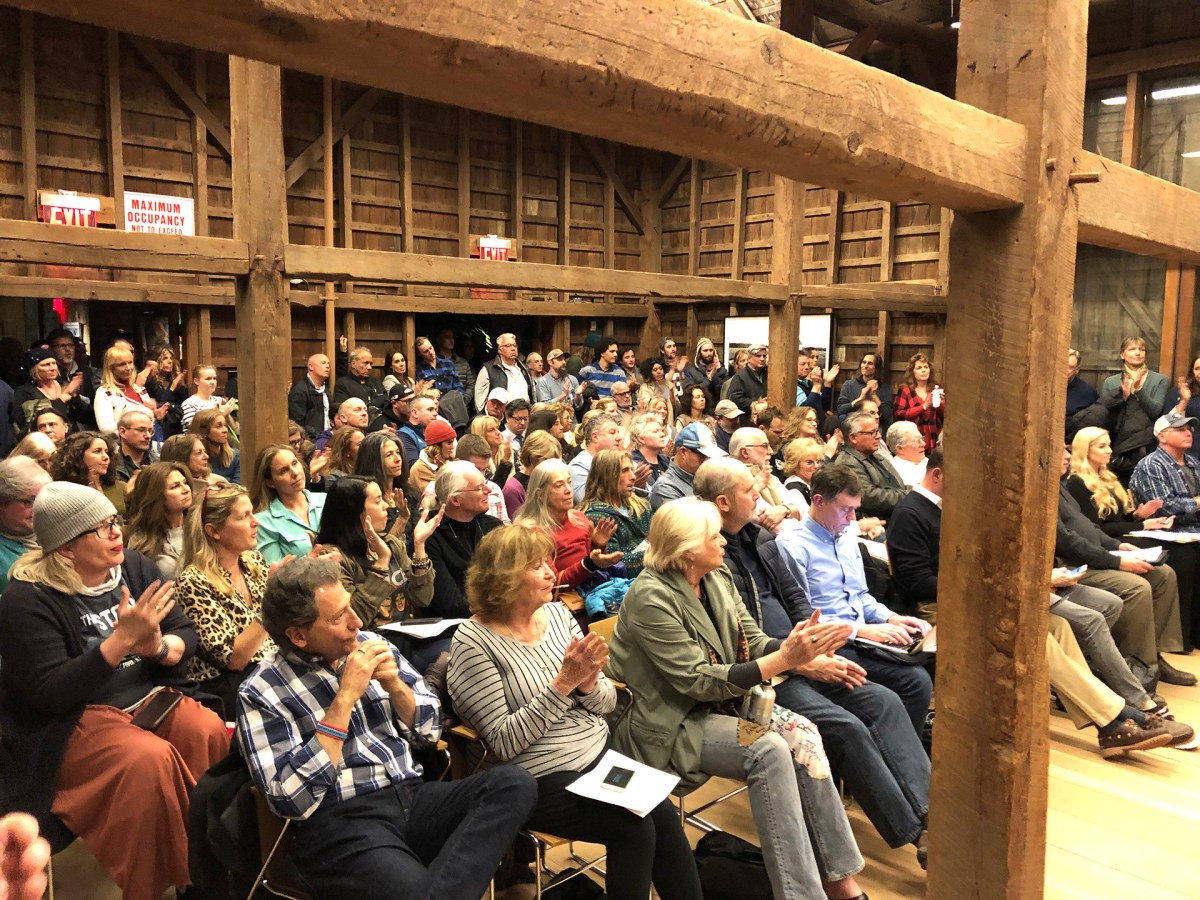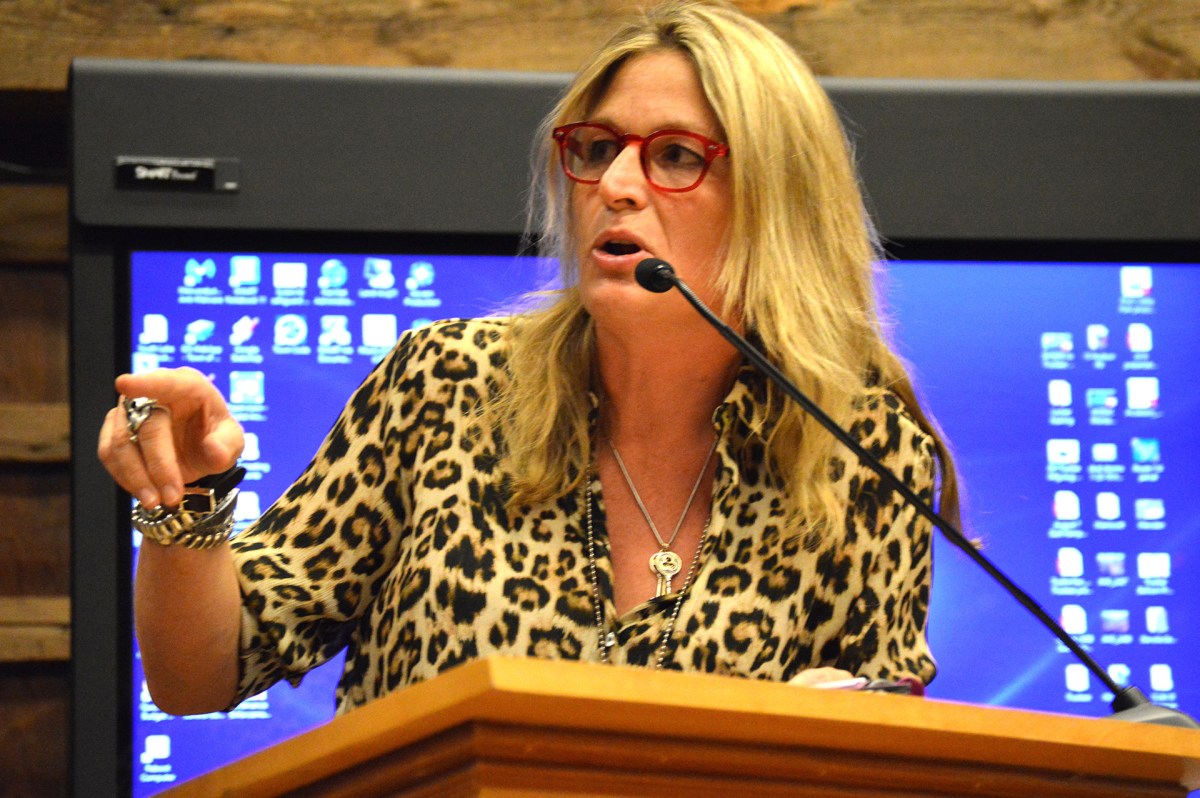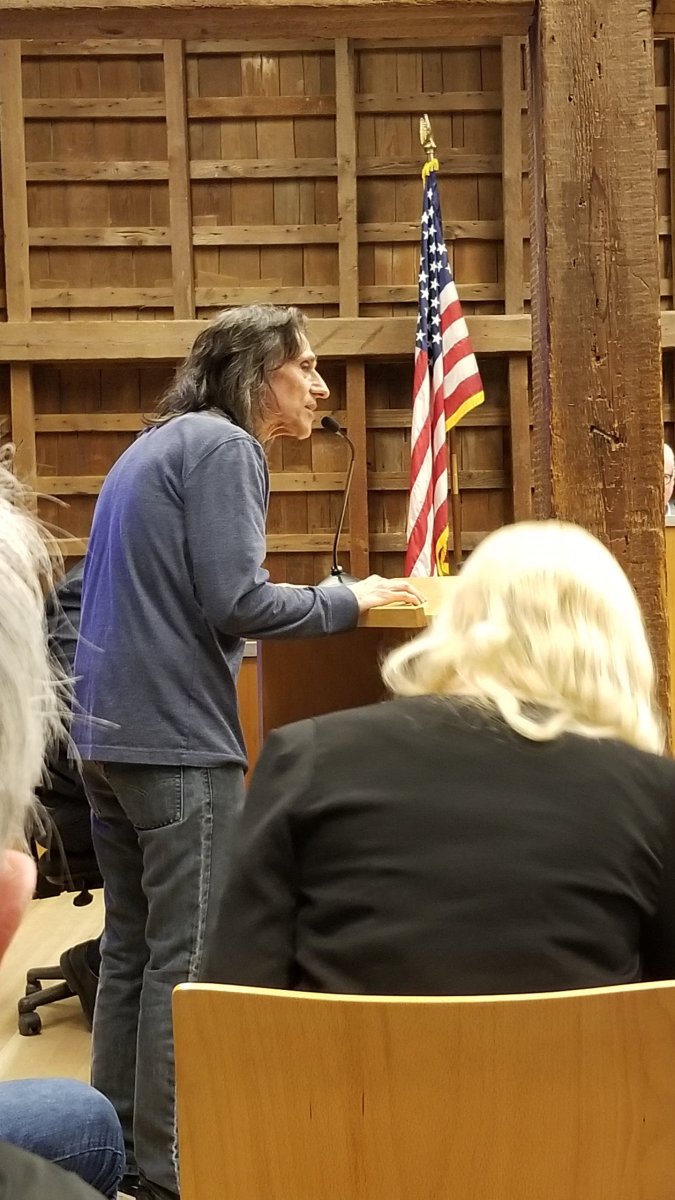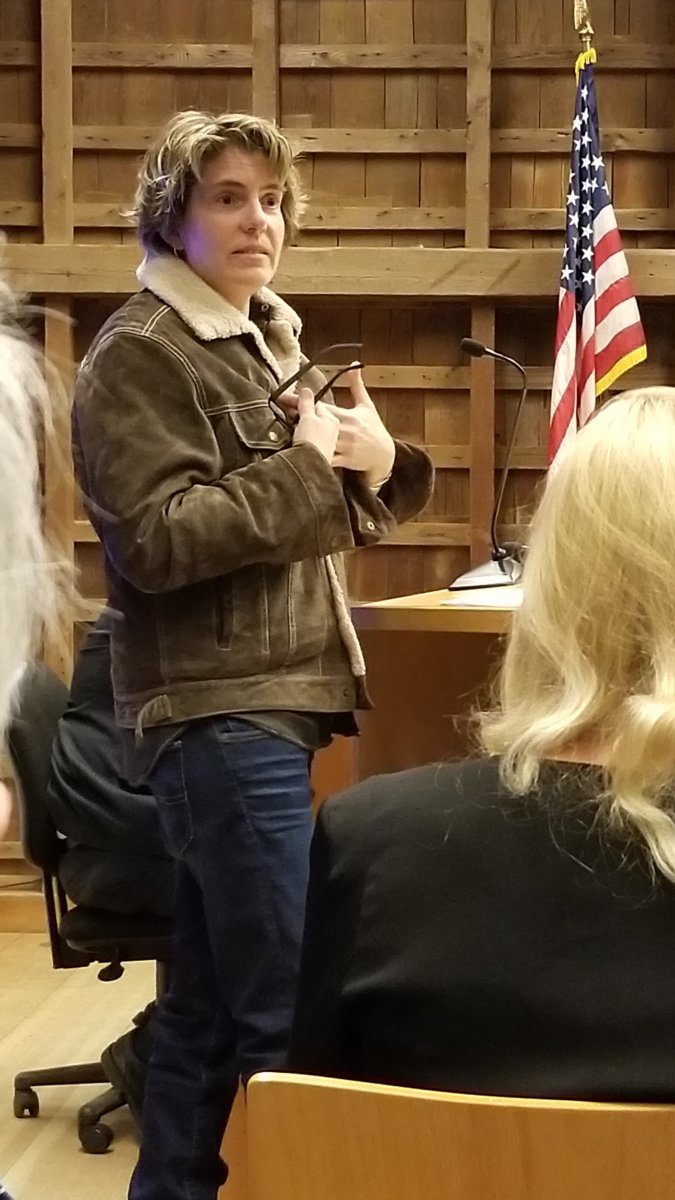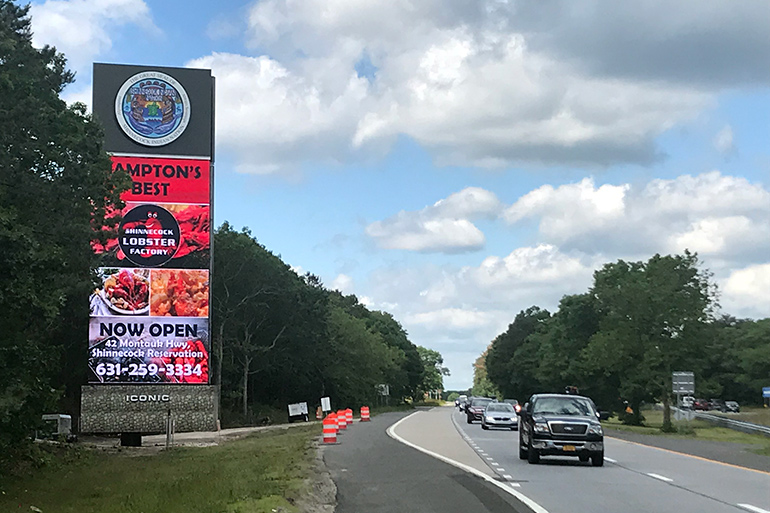Is It ‘Taps’ For EH Music Permit Revision?
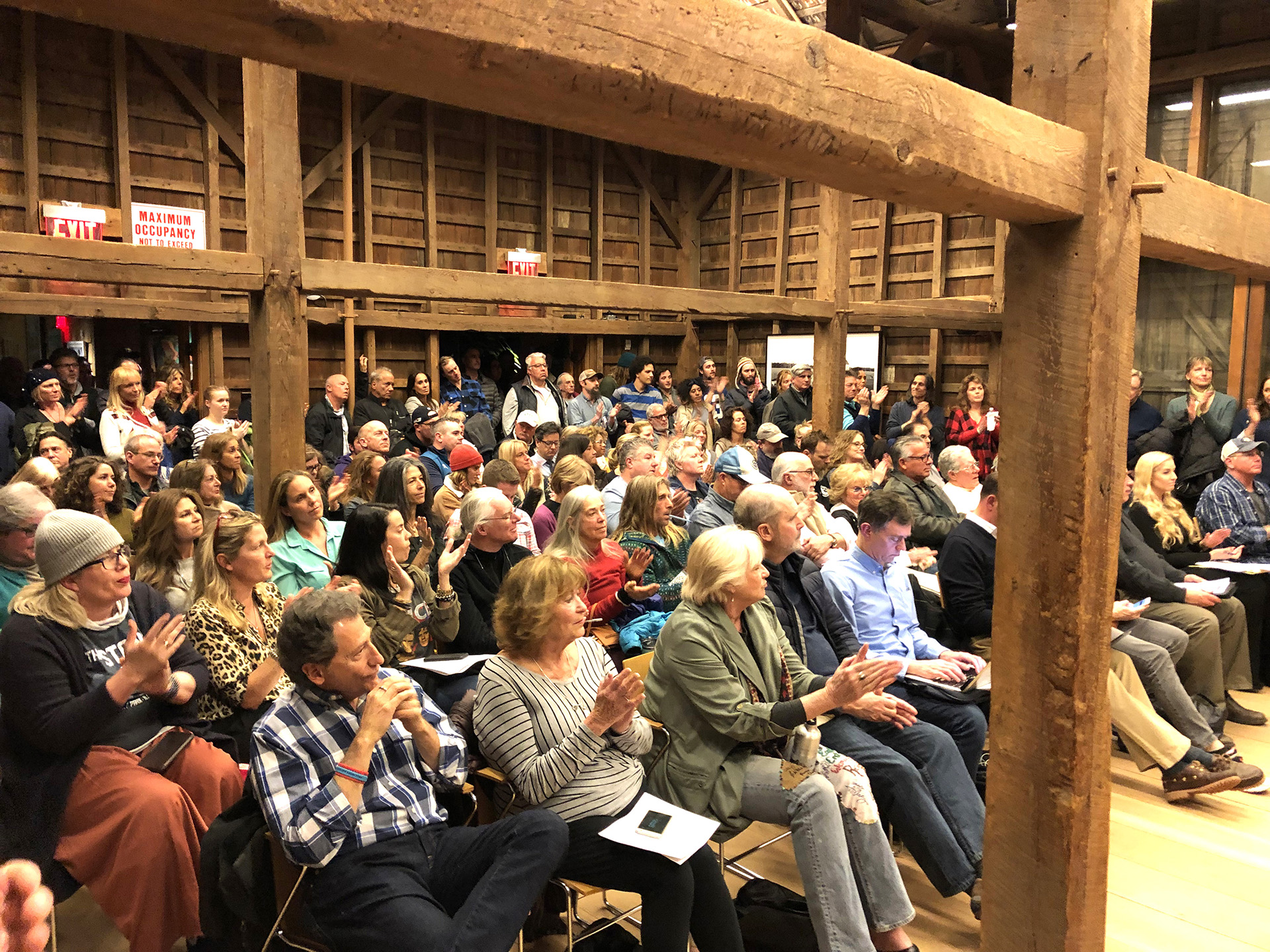
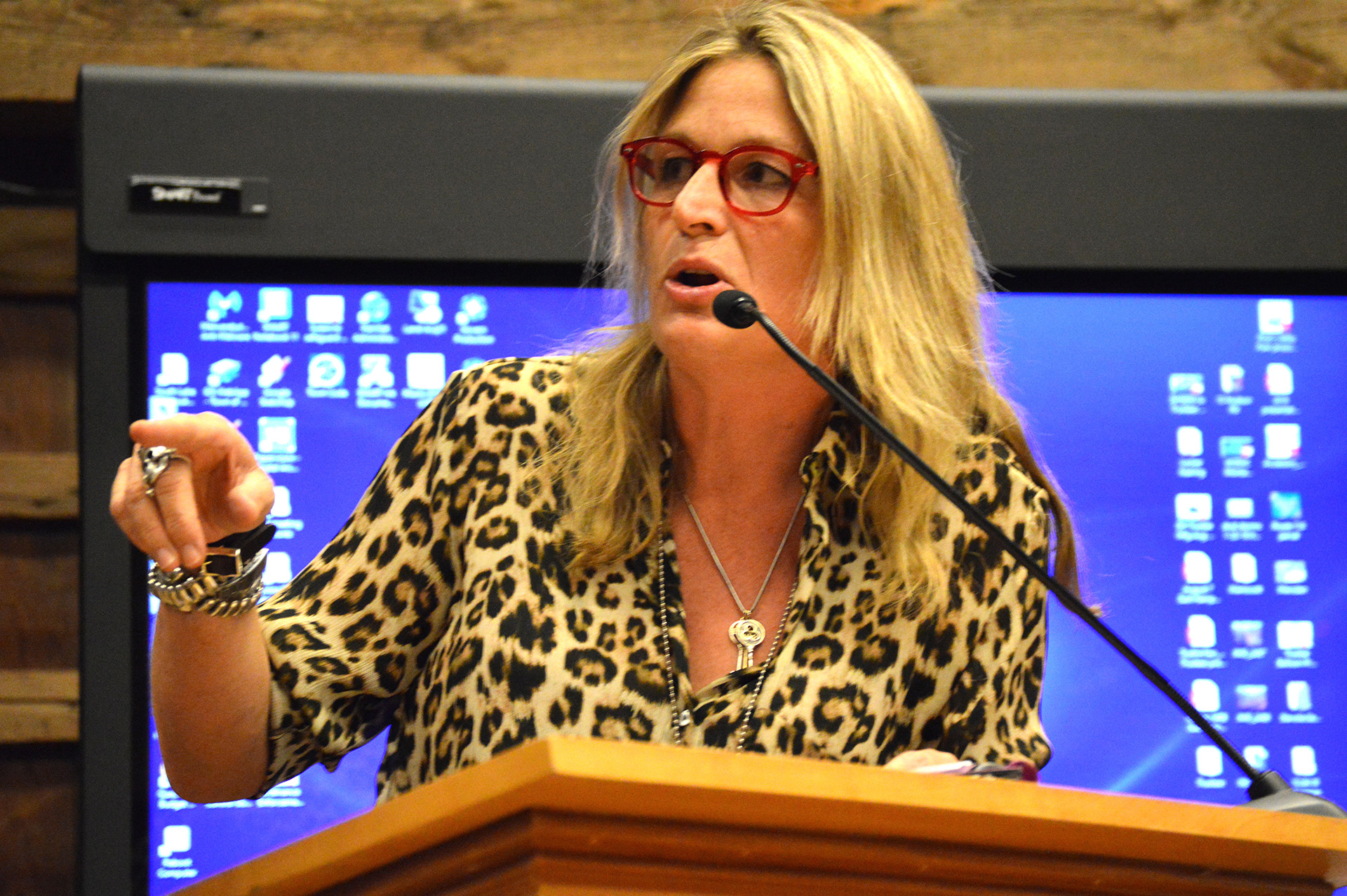
It was a standing-room-only crowd as Nancy Atlas and other East End musicians appeared before the East Hampton Town Board on March 21.
It was not a paying crowd and there were no instruments. Instead, the local musicians gathered to express their angst over proposed revisions to the town’s code regarding the issuance of music permits to restaurants, bars, and taverns. They were joined by politicians, lawyers speaking for clients, restaurant and bar owners, music lovers, and even a couple of teachers. More than three dozen speakers took to the podium that night, all speaking against the proposed amendment.
They were proceeded by Michael Sendlenski, town attorney, who explained the purpose of the proposed revisions, as he had done two days earlier during a town board work session.
Currently, restaurants, bars, and taverns must obtain a music entertainment permit before they can offer music, live or recorded, for their clientele. That would not change under the new law. However, instead of a permit essentially lasting into perpetuity, owners and managers of restaurants would now have to apply annually.
Sendlenski explained that ownership and management teams of bars and restaurants in a seasonal community come and go, and the permits need to reflect who is actually running the show.
Whereas music permits currently are free, the amended law would allow the town board, in the future, to set a fee for them.
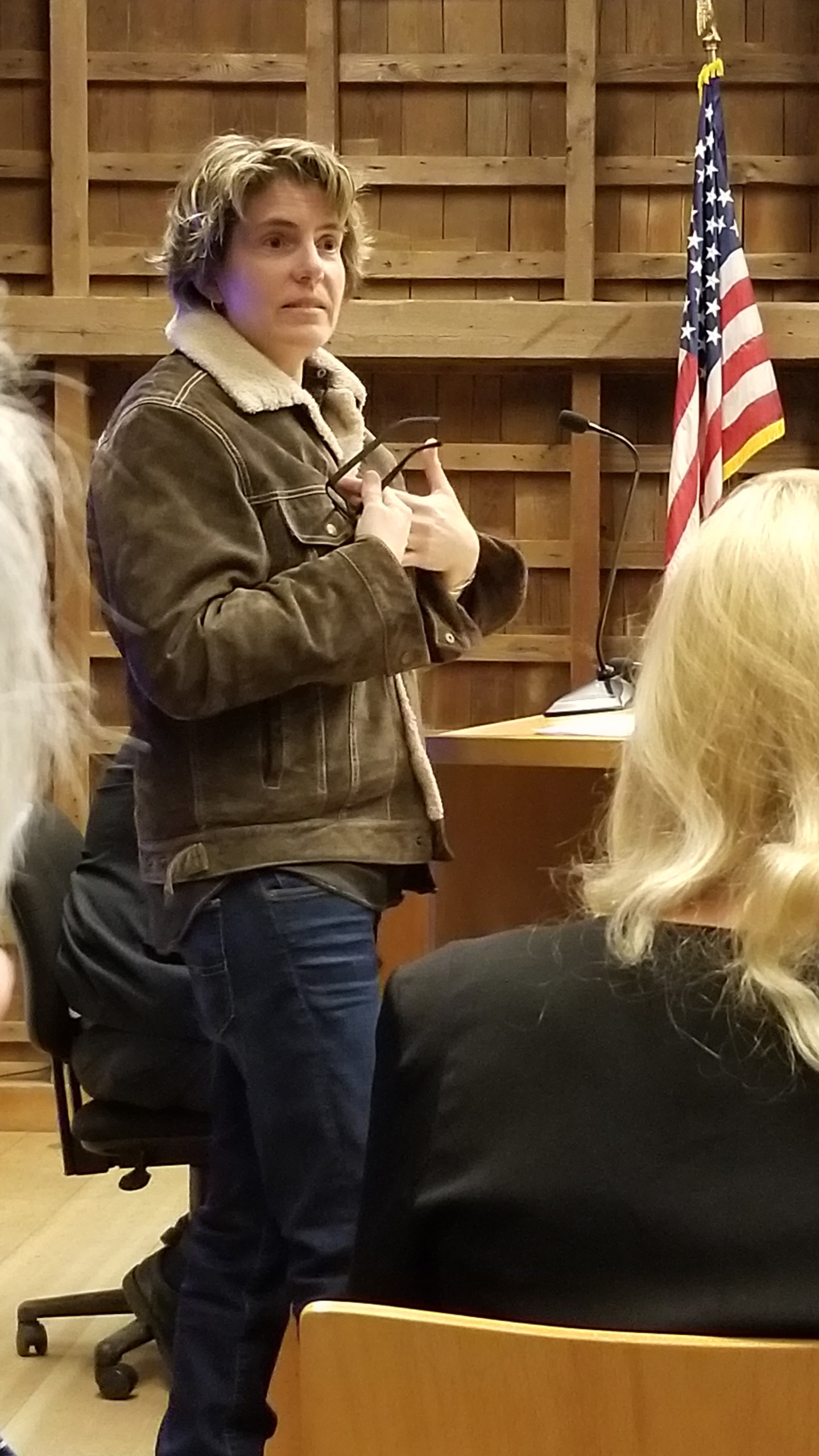
The proposed amended law contains a clause, Sendlenski said, making it clear that having a music permit does not give an establishment the right to convert its space into a dancehall, nightclub, or concert venue. Sendlenski specifically named two venues permitted as restaurants that had been removing chairs and tables from their floor areas at night to create room for dancing. The town has successfully addressed the issue in court against two Montauk restaurants, Ruschmeyer’s and Grey Lady, he said.
There are currently only three sites classified as dancehalls or nightclubs operating in the Town of East Hampton. Two are in Montauk, The Memory Motel and Sloppy Tuna, with the other being the Stephen Talkhouse in Amagansett. Such sites do not need music permits, Sendlenski explained, because music is inherent to their business classification.
A fourth, the site on Three Mile Harbor Road which has had many iterations over the years, such as NV Tsunami, Lily Pond, Cafe de la Musique, and SL East, appears to be headed in a different direction this year, operating as Spur East.
Convictions Required
Perhaps the most controversial proposed change to the current law, at least judging by the comments from speakers, involves the grounds for the denial of a music permit to an establishment.
Currently, the town clerk, upon learning that an establishment has been issued citations three times by code enforcement or police officers during the permit year for alleged violations of the town’s laws governing noise, should schedule a hearing before the town board to weigh the possible revocation or modification of the establishment’s music permit.
The problem with that approach, legally, Sendlenski said, is that the town then is potentially removing a music permit based solely upon an officer’s allegation. Instead, the new law requires convictions, not simply charges.
If the revision is approved, two convictions on violations of the town code in a year could result in the revocation of a permit. In addition, when applying for the annual permit, the town clerk can, at her discretion, deny an application for a music permit if the applicant has had two such convictions over the previous three years.
The town board would no longer be involved in the appeal process. Instead, a special committee would be set up for applicants who want to contest such a denial. That committee would consist of the town’s chief fire marshal, police chief, and the head of the town’s code enforcement and emergency preparedness division.
After Sendlenski spoke, it became open mic night at Town Hall, with sporadic raucous cheering and laughter. The hall was filled past capacity.
Lynn Blumenfeld, who goes by Lynn Blue when she sings, was first up. She called the proposed amendment “anti-Montauk.” She said that two convictions for a small business owner on town code matters in a three-year period was too low a number to be used to trigger a revocation of a music permit.
Blumenfeld was followed by Nancy Atlas of the Nancy Atlas Project. Atlas was a major player in the large turnout at Town Hall that night, after she posted the following on her Facebook page: “They are trying to take away my Surf Lodge Wednesdays. They are proposing a bill that will effectively wipe out the right for businesses to have live music for whoever they choose but here is the catch. I’m young, I’m calling in the troops, and I’m ready for the fight. Bring it, Town of East Hampton.”
While Atlas appeared to be aiming her ire at the town board and its proposed amendments to the music permit law, it is the New York State Liquor Authority that is directly responsible for the possible loss of her “Surf Lodge Wednesdays.” SLA chairman Vincent Bradley had a scathing exchange with Surf Lodge impresario Jayma Cardoso on March 6, during which he stated that his board would not issue a liquor license allowing live music at the iconic Montauk destination for the summer party crowd until the town issues a permit.
This comes after years of litigation between the town and Cardoso and her partners. The town, according to Cardoso, who spoke with The Independent Monday. The SLA hearing regarding the Surf Lodge’s liquor license, and its aftermath, are covered elsewhere in this issue.
Cardoso did attend last Thursday night’s meeting, standing at the rear of the crowd.
Orwellian Amendment?
Atlas told the board Thursday night that the language of the amendment is too vague.
Many of the speakers saw the amended language as a Machiavellian move to eliminate live music from the town. “To lose music, it’s the beginning of the end,” Ralph Perricelli, a Montauk resident, retired New York City fireman, and a musician, told the board.
Annie Morgan Rosch, another musician, whose husband, Richard Rosch, is the drummer for the Nancy Atlas Project, told the board that “I don’t know why it has to be continuously reiterated — music is a gift.” She asked why music is always under attack.
Several of the speakers equated the proposed amendment with something akin to George Orwell’s “1984,” or, perhaps, Ray Bradbury’s “Fahrenheit 451.”
Linda Fuller told the board she taught school in East Hampton for 40 years. Fuller referenced another dystopian novel, “The Giver,” by Lois Lowry. “The Giver,” Fuller said, is about a society that has banned music, “because the goal for that society was to eliminate emotional depth from the lives of its citizens.” She said, “When we would finish the novel, I would ask the students, ‘What would East Hampton be like without music?’”
Politicians running for town board were on hand, as well. David Gruber, an attorney running for Town Supervisor, accused the town board of overreach. “You are using a sledge hammer to drive in a nail,” he said. He added that out of the 70 or so music venues in the town, only three were creating problems. He also said that simply holding a single public hearing was “the worst possible way to get public input.” Bonnie Brady, a town board candidate, asked why she has to “beg” the current board to slow down on such major changes. Yet another candidate, Betsy Bambrick, a former head of the town’s code enforcement division, questioned the creation a review board consisting entirely of code and law enforcement officials.
Job Potter, a former town board member, and also a musician, suggested forming a committee of musicians, restaurant and bar owners, and other interested parties to take a fresh look at the law.
Besides Gruber, at least two other attorneys spoke, as well. Diane LeVerrier questioned the legality of the law, particularly the way the appeals board was being constituted, saying that it violates state law governing townships.
“They will be explaining this in court,” Deborah Choron warned. She said the amendment will hurt Montauk, as well as small business owners. “Who will be able to afford this?” she asked. “Maybe Marc Rowan,” was her rhetorical reply, which drew laughter and cheering. Rowan is the billionaire owner of Duryea’s, which has been in the eye of a political storm in East Hampton in recent weeks.
Even the fishing industry was represented. Anthony Sosinski of Montauk called for a music festival to raise money for Montauk beach restoration, saying that music is always a positive, never a negative.
“I just want to assure everybody that we all value live music in East Hampton,” Town Supervisor Peter Van Scoyoc, who is himself a musician, said towards the end of the meeting. “Everyone on this board does. We are not going to shut down live music.”
t.e@indyeastend.com
